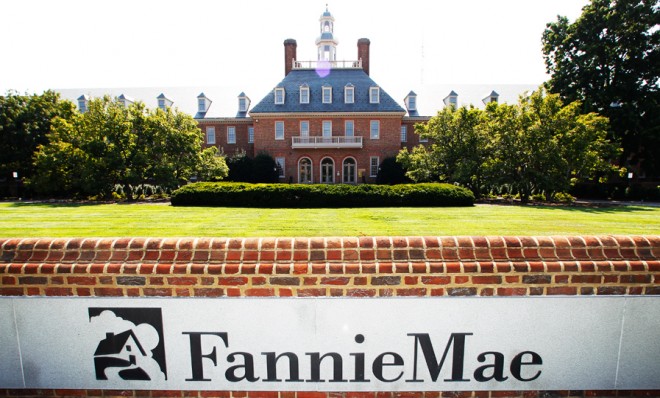Freddie and Fannie's zombie stocks: Why are they coming alive?
And should we run for the hills?

A free daily email with the biggest news stories of the day – and the best features from TheWeek.com
You are now subscribed
Your newsletter sign-up was successful
Shockingly, Freddie Mac and Fannie Mae's share prices have tripled this year — evidence of the "foolishness on Wall Street, this time with an assist from the government," says Steven M. Davidoff at the New York Times. Davidoff goes on to scold Washington for "deliberately allowing trading to go on in stock that the government is going out of its way to make worthless."
Freddie and Fannie — the twin mortgage giants who were rescued from death-by-massive-debt thanks to a federal takeover in September 2008 — have both reported profits for the first time since the financial crisis. And investors, including hedge funds, are buying stock on the long-shot that the two lending behemoths might once again become private companies, even though the Obama administration has promised to wind down and eventually end the two entities permanently.
Freddie Mac announced a net income of $11 billion in 2012, the result of a few good investments, derivative bets, and fewer borrowers falling behind on their loans. That's a huge flip from Freddie's net loss of $5.3 billion in 2011. It's also Freddie's first profit since 2006, and its largest ever. Similarly, Fannie Mae announced a profit of $17.2 billion for 2012.
The Week
Escape your echo chamber. Get the facts behind the news, plus analysis from multiple perspectives.

Sign up for The Week's Free Newsletters
From our morning news briefing to a weekly Good News Newsletter, get the best of The Week delivered directly to your inbox.
From our morning news briefing to a weekly Good News Newsletter, get the best of The Week delivered directly to your inbox.
Those profits are being read as a clear sign that the housing market is continuing to find its feet. But Fannie and Freddie's turnabout is also piquing the interest of investors. Here's the Times' Davidoff:
On an average day, Fannie Mae and Freddie Mac stock have a combined volume of about 25 million shares. If the stocks were back on the New York Stock Exchange, they would be top-traded stocks.
Until a few months ago, the shares of the two companies traded like penny stocks in a range of 20 cents to 30 cents. That’s a far cry from 2004, when both stocks were trading over $70 a share.
Since the beginning of the year, however, Fannie Mae shares have surged 238 percent, to more than 86 cents. Freddie Mac shares are up 211 percent year to date, at 81.9 cents. [New York Times]
The government has delisted Fannie and Freddie from the New York Stock Exchange, though the shares are traded over the counter. And Team Obama has vowed to shutter Fannie and Freddie eventually. So why are investors buying? "The idea is eventually, as these companies have paid back their debt to the government, they could potentially be turned back on," Bose George, an analyst at Keefe Bruyette & Woods, told Bloomberg. "From our perspective, you can only make an argument for this if you think the government's going to change the rules somehow to benefit the preferred shareholders."
So despite the renewed interest around Fannie and Freddie — who, let's remember, needed some $200 billion in federal cash to avoid going under, only one-third of which has been paid back — this may not be the most promising investment opportunity. As Davidoff says, "When zombie stocks show signs of life, you know you are in trouble."
A free daily email with the biggest news stories of the day – and the best features from TheWeek.com
Carmel Lobello is the business editor at TheWeek.com. Previously, she was an editor at DeathandTaxesMag.com.
-
 Local elections 2026: where are they and who is expected to win?
Local elections 2026: where are they and who is expected to win?The Explainer Labour is braced for heavy losses and U-turn on postponing some council elections hasn’t helped the party’s prospects
-
 6 of the world’s most accessible destinations
6 of the world’s most accessible destinationsThe Week Recommends Experience all of Berlin, Singapore and Sydney
-
 How the FCC’s ‘equal time’ rule works
How the FCC’s ‘equal time’ rule worksIn the Spotlight The law is at the heart of the Colbert-CBS conflict